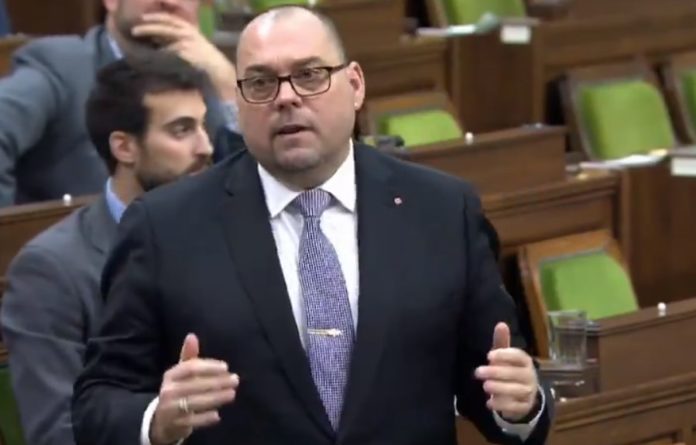A BC Member of Parliament’s motion calling for the creation of a national suicide hotline received unanimous approval in the House of Commons on Friday, signalling Ottawa’s interest in better mental health supports.
The motion was brought by MP Todd Doherty, and calls on the federal government to take immediate action to establish a 9-8-8 number for suicide prevention.
Doherty, the representative for Cariboo — Prince George, called the rate of suicides in Canada a national health crisis.
“Madam Speaker, I know like me, many of our colleagues have experienced the pain, loss, guilt and anger of suicide,” he said as he introduced his motion.
Doherty says that the motion would consolidate existing crisis numbers under the single 9-8-8 line, so that anyone calling that number would be transferred to local services in their area.
“I think that having a unified, shorter, easier to remember number like 9-8-8 makes a lot of sense,” said Brianna Turner, a clinical psychologist and associate professor of psychology at the University of Victoria, in an interview with Victoria Buzz.
“It makes it easier for people who are in crisis to reach out for help.”
Turner has been researching self-harm and self-injury as well as other self-destructive behaviours for years. Recently, she and a colleague studied the mental health effects of the COVID-19 pandemic.
The psychologist says she welcomes the change as a way of unifying crisis lines, which are a vital tool in mental health care.
“The strength of a crisis line is that it’s immediately accessible,” Turner said.
“You can call and ideally your call is answered right away, you’re speaking to somebody who has expertise and experience to help you in the moment when you need it.”
The system isn’t perfect. Turner says that in some cases people aren’t aware about existing crisis hotlines or are confused about when they should call.
Other times people may be reluctant to call, feeling that they’re not distressed enough or that their crisis isn’t serious.
“Making sure that people are aware that they can call for a variety of mental health emergencies or concerns will hopefully decrease some of those barriers to accessing help,” Turner said.
The other key component that she believes is needed for a successful implementation of a 9-8-8 number is maintaining and increasing accessibility to local service providers.
Part of that can be expanding services through virtual or remote care.
“One of the strengths that I’ve seen as mental health services have adapted to the pandemic, [is that] we’re seeing a lot more virtual therapy offered,” said Turner.
“People are accessing mental health services by phone or by video now. That’s breaking down some of the geographic barriers to care.”
In October, President Donald Trump signed the bipartisan National Suicide Hotline Designation Act, which calls for the adoption of a 9-8-8 number across the U.S. for mental health crises.
A federal report estimated that the cost of switching over to the service would be $570 million USD in the first year, followed by $175 million in the second year.
Subsequent years would cost $50 million US annually.
Turner is glad we’re considering the option in Canada, too.
“It seems like we’re having more open conversations,” she said. “I hope that that encourages people to reach out for help if they need it.”



